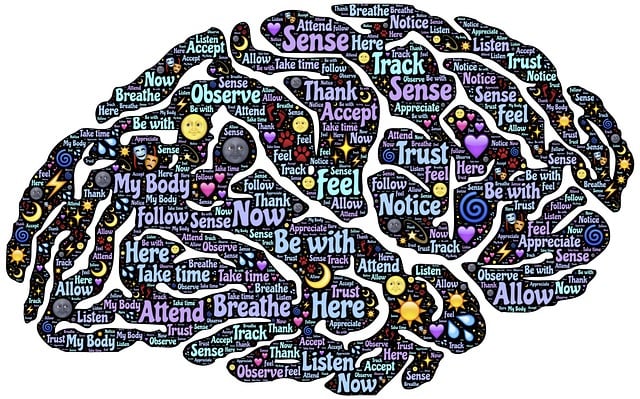Emotion regulation is a crucial skill in today's stressful world, involving recognizing, understanding, and managing emotions healthily. Parker Stress Management Therapy (PSMT), developed by Dr. Michael Parker, focuses on self-awareness, identifying emotional triggers, and developing adaptive coping strategies. This holistic approach combines mindfulness, cognitive restructuring, and empathy-building to enhance resilience and modify stress responses. Teaching emotion regulation skills through evidence-based methods like PSMT is vital for mental health awareness, boosting academic performance, and preventing burnout. Implementing these techniques in educational settings and public campaigns can empower people to lead more balanced lives while mitigating stress and anxiety.
Emotion regulation is a vital skill, especially in today’s fast-paced world. This comprehensive guide explores effective strategies for teaching individuals to manage their emotions, focusing on the powerful Parker Stress Management Therapy approach. We delve into the significance of emotion regulation, offering an in-depth look at its benefits and its role in enhancing overall well-being. The article covers various techniques, practical applications, and evaluation methods, providing a valuable resource for professionals and enthusiasts alike interested in mastering this essential skill.
- Understanding Emotion Regulation and Its Importance
- Parker Stress Management Therapy: An Overview
- Practical Techniques for Teaching Emotion Regulation
- Implementing and Evaluating Effective Learning Strategies
Understanding Emotion Regulation and Its Importance

Emotion regulation is a crucial skill that involves recognizing, understanding, and managing our emotional responses effectively. It’s about more than just suppressing feelings; it’s about learning to navigate them in healthy ways. This process empowers individuals to make sense of their emotions, react appropriately to situations, and maintain emotional balance. In today’s fast-paced world, where stress and anxiety are prevalent, mastering emotion regulation techniques is a game-changer. It can help folks not only cope with everyday challenges but also prevent more severe issues like depression.
The Parker Stress Management Therapy, for instance, emphasizes the importance of understanding one’s emotional triggers and developing adaptive coping strategies. By teaching individuals how to manage stress and build confidence in their ability to regulate emotions, this approach equips them to face life’s ups and downs with resilience. This skill is not only beneficial for stress management but can also serve as a powerful tool in depression prevention by fostering emotional stability and a sense of control.
Parker Stress Management Therapy: An Overview

Parker Stress Management Therapy (PSMT) is a unique and highly effective approach to teaching individuals how to manage stress and emotions in their daily lives. This therapeutic method, pioneered by Dr. Michael Parker, focuses on empowering people to take control of their emotional well-being. PSMT emphasizes self-awareness as a cornerstone of its practice, encouraging clients to recognize and understand their triggers, thoughts, and feelings. Through a series of structured exercises, individuals learn to identify patterns in stress response and develop strategies to modify them.
The therapy incorporates various techniques, such as mindfulness practices, cognitive restructuring, and empathy-building strategies. By fostering resilience and inner strength development, PSMT equips individuals with the tools to navigate challenging situations with greater ease. This holistic approach not only helps clients manage acute stress but also enables them to build long-term emotional regulation skills, leading to improved overall mental health and well-being.
Practical Techniques for Teaching Emotion Regulation

Teaching emotion regulation skills is a vital aspect of fostering mental health awareness among individuals of all ages. One evidence-based approach that has gained prominence in recent years is Parker Stress Management Therapy (PSMT). PSMT offers practical techniques to help individuals navigate and manage their emotional responses effectively. By employing strategies such as cognitive reappraisal, mindfulness exercises, and relaxation techniques, students can learn to challenge negative thought patterns and replace them with more balanced perspectives.
Incorporating these methods into educational settings not only enhances academic performance but also contributes to burnout prevention. Public awareness campaigns development focused on emotion regulation can play a significant role in promoting mental health literacy. By equipping individuals with the tools to recognize, understand, and manage their emotions, we empower them to lead more fulfilling lives, reducing the impact of stress and anxiety.
Implementing and Evaluating Effective Learning Strategies

Implementing effective learning strategies is a cornerstone of successful emotion regulation techniques teaching. At the core of this approach lies Parker Stress Management Therapy, which emphasizes the importance of tailoring interventions to individual needs. By combining theoretical knowledge with practical skills, educators can empower students to manage their emotions constructively. Social Skills Training plays a pivotal role in this process, helping individuals recognize and express feelings appropriately, thereby fostering healthier interactions.
Evaluating the impact of these strategies is equally crucial. Mental Wellness Coaching Programs Development offers a structured framework for assessing progress, allowing teachers to track student growth in emotion regulation. This continuous assessment enables them to adapt teaching methods, ensuring that each learner receives the support they need to develop inner strength. Through such personalized guidance, students can better navigate life’s challenges and cultivate lasting mental wellness.
Emotion regulation is a vital skill, and teaching these techniques can empower individuals to navigate life’s challenges with greater resilience. As discussed in this article, understanding the importance of emotion regulation sets the stage for effective learning strategies, such as those offered by Parker Stress Management Therapy. By integrating practical techniques into educational settings, we can foster healthier emotional development in students, enabling them to manage stress and emotions proactively. Implementing these strategies and evaluating their impact is crucial to ensuring that teaching emotion regulation becomes a game-changer in personal growth and well-being.














